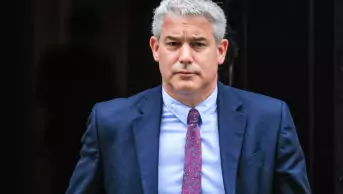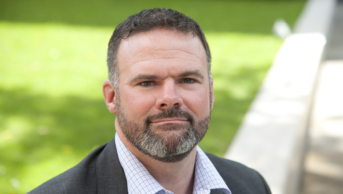
Shutterstock.com
Plans for every GP practice in Scotland to have the support of a pharmacist or pharmacy technician may have to be adjusted owing to workforce shortages, pharmacy leaders have warned.
Community Pharmacy Scotland (CPS), which represents pharmacy owners across Scotland, confirmed on 14 February 2019 that recruitment problems with pharmacists and pharmacy technicians, which had been affecting rural and remote districts, were now emerging in urban areas.
The organisation said that the problems could affect the pharmacotherapy service, which was introduced as part of the ‘General Medical Services Contract in Scotland’ in April 2018, and that it may have to be delivered in a different form to what was originally intended, as part of a pharmacy minor ailment scheme, for example.
The Scottish GP contract said the new pharmacotherapy service will be up and running in every GP practice by 2021, with all practices in Scotland benefiting from ‘core’ elements of the service, such as actioning repeat prescription requests, medicines reconciliation, and non-clinical medication reviews. In some areas, the pharmacotherapy service is also aimed to provide ‘additional’ elements, including polypharmacy reviews and specialist clinics covering areas, such as chronic pain and heart failure.
A spokesperson for the CPS told The Pharmaceutical Journal: “We think that the service will continue to roll out in the face of workforce pressures in community pharmacy. But, realistically, the finite resources in terms of the number of pharmacists and pharmacy technicians available will mean that pharmacotherapy will not be delivered in the exact form that it has been imagined in … the numbers of trained individuals required are simply not available.”
Early indications are that development of the service is happening in a somewhat piecemeal manner. In Lanarkshire, for example, the new service is expected to build on the existing pharmacy support available to GPs.
Currently, between 23 and 30 GP clinical pharmacists in Lanarkshire provide a medicine support service to practices of around a half day per week.
But a Lanarkshire joint health and council action plan, which details how the new pharmacotherapy service could be implemented, warns that success of the expansion to cover all GP practices will depend on “the ability to recruit staff at appropriate levels and within adequate time scales to carry out the roles described within [the GP] contract”.
Meanwhile, a pilot project which tested a pharmacotherapy service in 14 GP practices in Inverclyde has become permanent, with the model now being rolled out across the Greater Glasgow and Clyde health board district.
Margaret Maskrey, lead clinical pharmacist for Inverclyde health and social care partnership and one of the leads for the pilot project, said it had brought improvements in medicines optimisation as well as the benefit of “developing a model of transformational change and sustainability for primary care” as well as a reduced GP workload.
The results of a national pharmacy workforce survey by the Scottish government — due to take place in March 2019 — will give a clearer indication of where the recruitment pressure points are in Scotland and whether the current numbers can deliver the new service.
The National Pharmacy Association said it “remained concerned about staffing in Scotland”.


